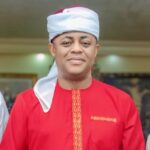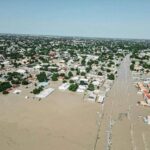In this piece, I further explore deeper issues relating to the lessons that political history of the world around us offer in focusing on the leadership challenges that Nigeria needs to urgently engage with, as we approach the change of leadership baton in 2023. There are several countries that have faced down the odds of progress and development to achieve transformative metamorphosis through the deployment of change management with unstinting focus and political will. These are the various lessons that I hope to bring to light in this piece. And I want to weave the narrative around America’s vision of landing a man on the moon.
In 1962, at the Rice University Stadium, J. F. Kennedy gave the now famous “Moon Speech” that gave political will to what is now the series of Apollo Mission to the moon. In his attempting at persuading the American people to sign on to the Apollo programme and own it, JFK noted that it was “an hour of change and challenge,” and in a “decade of hope and fear”; and yet he insisted that “We shall send to the moon 240,000 miles away, a giant rocket, more than 300 feet tall on an untried mission to an unknown celestial body, and then return it safely to Earth.”
But beyond the attempt at pioneering what has been called the “greatest adventure in the history of mankind”, there is the singular leadership frame that mapped the vision of space travels to national goals and objectives and capabilities. How could mining the space enable better service delivery for the American people? And JFK was committed to that leadership responsibility.
It was also the same leadership commitment that led to the stretch of visionary focus that transformed the UAE from a wasteland to an industrialised territory. The Al-Maktoum royal family saw clearly what needed to be done and they put together a change management framework, backstopped by a stringent political commitment, to push it through. And again, the question is similar to that which got the United States to the moon: what could be done to transform this desert and its entire crude oil resource into a fertile industrial and creative hub that will draw millions of people every year round?
NGF tasks state health MDAs on leadership for Universal Health Coverage, SDGS
Police release N13.6bn to 6,184 killed, injured officers’ families
It is this same leadership thrust that runs through the transformational experiences of Japan, the UK, New Zealand and the Asian Tigers. Thus, for example, the leadership dynamics of post-1945 Japan and the Asian Tigers—Taiwan, Singapore, Hong Kong and South Korea—latched onto the developmental state paradigm as the framework for national economic recovery and transformation. With the Ministry of International Trade and Industry (MITI), Japan in 1945 forced itself into economic transformation by leveraging high-end multidisciplinary research-backed policy intelligence. And in the same sense, the Asian Tigers also crafted specific policies that undermined the limitations of neoliberal economic agenda and its dependency ideology.
Now I return to the powerful leadership lessons the Apollo missions in the United States can teach a postcolonial Nigerian state yearning for transformation. The first lesson is that, in leadership terms, visions and ideas matter as the fundamental conditions, in development planning, for undermining difficulties. The second lesson is that leadership in the change space is concerted and collaborative. It is a function of a seamless synergy that ensures that members—government officials, functionaries, politicians, professionals, all work together efficiently even if they are not on speaking terms! The three fundamental astronauts that made the first Apollo mission successful—Neil Armstrong, Michael Collins, and Edwin Aldrin—all had different personalities and temperament. And yet Apollo landed on the moon. In Nigeria, ethnic and religious affiliation need not constitute barriers to efficiency.
The third corollary lesson is straight forward: not everyone in the change space can be the leader but everyone matters. The truth about the change space is actually that everyone is a leader, even if not everyone makes the commanding decision. Michael Collins was just satisfied with orbiting the moon while waiting for Armstrong and Aldrin to return. Within Nigeria’s dysfunctional political and developmental space, Collins would have rebelled against such a “demeaning” responsibility. Collins did not. The fourth lesson is enormous. The change space that made the Apollo project possible and successful was made up of over 300,000 people. This speaks to the inevitable element of partnership. Governance is no longer the sole preserve of the government in the twenty-first century. The public-private partnership model must become a fundamental template for making governance work, and the Nigerian state genuinely developmental. The fifth lesson is close to the fourth: the workforce strength of the Apollo mission did not just rely on motivation. That motivation was the incentivised competency-based people management praxis. Workforce culture change and professional satisfaction play a significant role in performance and productivity achievement. This is simply axiomatic.
The last lesson is the willingness to learn from mistakes. Apollo 11 was successful because of the lessons learnt from the failure of Apollo 1. We have approximately sixty-three years of trial and error to learn from in making post-2023 Nigeria an opportunity to eventually get it right. If we have to mine the sea-beds to get the materials that make the highways solid and motorable, then we have to do it. If we have to import foreigners to make our healthcare system super-efficient, that is the right way to go!
Oloapa is a Directing Staff at the National Institute for Policy and Strategic Studies (NIPSS), Kuru, Plateau State.
 Join Daily Trust WhatsApp Community For Quick Access To News and Happenings Around You.
Join Daily Trust WhatsApp Community For Quick Access To News and Happenings Around You.


